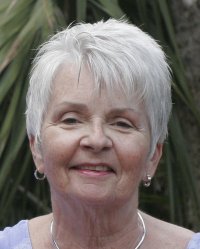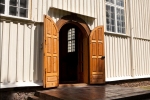November 10, 2010
Listen to Your Mother
She said they were the best conversations she’d ever had with her three kids. And the best birthday present ever, in all her 70 years.
Little did I know when I suggested to my brothers that we tell stories for mom’s birthday last November, that we’d end up participating in StoryCorps’s National Day of Listening. What started as a simple idea to share around the dinner table became instead a series of one-hour interviews with my mother, conducted by her three grown children.
I love StoryCorps. Often I hear the short interviews on NPR in the morning. Usually I shed a few tears into my coffee cup or laugh aloud at the wonderful heartfelt snippets of people’s lives. “Every life matters” is the tagline for this amazing oral history project, one of the largest of its kind, that provides Americans of all backgrounds and beliefs the opportunity to record, share, and preserve the stories of their lives. Since 2003, more than 30,000 interviews from more than 60,000 participants have been stored at the American Folklife Center at the Library of Congress. (Check out Barbara Dundon’s Vestry Papers article this month about her experience using StoryCorps at St. Martin-in-the-Field.)
So when I got an email announcing their National Day of Listening, I was intrigued. They were encouraging people everywhere to take time on the Friday after Thanksgiving to listen to someone else’s story – a family member, a neighbor, or the man who owns the corner deli. My family would already be gathered for Thanksgiving, but we were seeking a way to mark mom’s 70th birthday as a special time. With  simple tips for audio recording and sample questions I could customize myself, the National Day of Listening gave me more incentive and structure to honor mom’s life.
simple tips for audio recording and sample questions I could customize myself, the National Day of Listening gave me more incentive and structure to honor mom’s life.
At first my brothers and mom were a bit skeptical - this wasn’t a typical birthday present. Mom wondered what questions we’d ask and if her memory would cooperate. My two brothers are creative techies, so their interest was piqued after they started digging in the basement for equipment. Before long they had created a home recording studio in the upstairs bedroom: makeshift sound barriers, two cozy chairs, two standing microphones, and a Mac laptop to record and adjust the sound quality.
We each took a turn talking to mom alone that afternoon. I asked about her childhood growing up in Chicago, relatives I’d never known, and how she met my dad. My younger brother, who now has a son of his own, asked mom about her lessons from parenting. With my older brother, mom talked about her later life, including my parents’ divorce and her impressions of how each of us children became who we are today. While that part of the interview was the hardest, she was so grateful for the opportunity to say things she may never have said or remembered without this dedicated time of listening.
Mom talked about this experience for months. She told her friends and started writing down memories. And it inspired my brother to create a little book of childhood memories for his young son.
It was the best gift ever. But it wasn’t bought in a store, and didn’t cost a dime. What it cost was time. Time to slow down. Time to create sacred space away from the hustle and bustle of daily life. Time to listen deeply, instead of succumbing to the usual family chatter.
In the church we can run the risk of delegating the sacred act of listening to clergy or selected lay leaders as “pastoral care.” Surely pastoral care ministries are needed. But God calls us all to love our neighbor and to respect the dignity of every human being. Listening is one of the most respectful and holy encounters we can have with one another. We can start easy – with our families, friends, and neighbors. Then we may be able to listen to the stranger when he appears.
(Editor’s Note: The next National Day of Listening is Friday November 26, 2010.)





